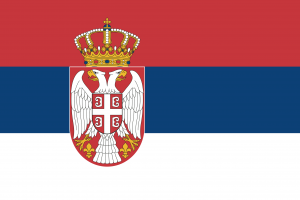Language/Serbian/Vocabulary/Food-and-Drink
 Հայերէն
Հայերէն Български език
Български език 官话
官话 官話
官話 Hrvatski jezik
Hrvatski jezik Český jazyk
Český jazyk Nederlands
Nederlands English
English Suomen kieli
Suomen kieli Français
Français Deutsch
Deutsch עברית
עברית हिन्दी
हिन्दी Magyar
Magyar Bahasa Indonesia
Bahasa Indonesia فارسی
فارسی Italiano
Italiano 日本語
日本語 Қазақ тілі
Қазақ тілі 한국어
한국어 Lietuvių kalba
Lietuvių kalba Νέα Ελληνικά
Νέα Ελληνικά Şimali Azərbaycanlılar
Şimali Azərbaycanlılar Język polski
Język polski Português
Português Limba Română
Limba Română Русский язык
Русский язык Español
Español العربية القياسية
العربية القياسية Svenska
Svenska Wikang Tagalog
Wikang Tagalog தமிழ்
தமிழ் ภาษาไทย
ภาษาไทย Türkçe
Türkçe Українська мова
Українська мова Urdu
Urdu Tiếng Việt
Tiếng Việt
| ◀️ Numbers and Counting — Previous Lesson | Next Lesson — Family and Relationships ▶️ |
As a Serbian language teacher with 20 years of experience, I find it important to introduce my students to the rich culinary culture of Serbia. In this lesson, we will learn vocabulary related to food and drinks in the Serbian language.
Consider exploring these related pages after completing this lesson: Family and Relationships & How to Say Hello and Greetings.
Foods
Serbian cuisine is influenced by Mediterranean and Ottoman cuisines. There are also distinct dishes that are unique to Serbia, such as:
- Ćevapi - minced meat served in pita bread
- Pljeskavica - a type of burger made from beef or pork
- Ajvar - a spread made from roasted red peppers, eggplant, and garlic
- Sarma - cabbage rolls filled with ground meat and rice
- Kajmak - a creamy dairy spread served with bread or meat dishes
Here are some basic words you will need to know when discussing food in Serbian:
| Serbian | Pronunciation | English |
|---|---|---|
| hrana | /hrana/ | food |
| doručak | /doruchak/ | breakfast |
| ručak | /ruchak/ | lunch |
| večera | /vechera/ | dinner |
| užina | /uzhina/ | snack |
| hleb | /hleb/ | bread |
| salata | /salata/ | salad |
| supa | /supa/ | soup |
| meso | /meso/ | meat |
| riba | /riba/ | fish |
| povrće | /povrche/ | vegetables |
| voće | /vohche/ | fruits |
Beverages
Serbian cuisine also has some traditional beverages that you may enjoy. Here are some words for common beverages:
| Serbian | Pronunciation | English |
|---|---|---|
| voda | /voda/ | water |
| kafa | /kafa/ | coffee |
| čaj | /chaj/ | tea |
| pivo | /pivo/ | beer |
| vino | /vino/ | wine |
| rakija | /rakija/ | brandy |
| sok | /sok/ | juice |
| gazirano piće | /gazirano pichye/ | carbonated drink |
| bezalkoholno piće | /bezalkoholno pichye/ | non-alcoholic drink |
In Serbia, it is common to say "Živeli!" (Живели!) before drinking. This is similar to "Cheers!" in English.
Conclusion
I hope this lesson gave you an idea of Serbian cuisine and helped you learn some useful vocabulary for food and drinks. Don't forget to visit Serbia and try some of our delicious dishes!
Sources
- 1# Cheat Sheet with 60+ Tasty Food Vocabulary In Serbian - Ling App
- Food Vocabulary In Serbian. Food and drink is a reoccurring talking ...
- Serbian lessons: Meals
- Serbian games and flashcards: learn Serbian online for free
Upon wrapping up this lesson, take a look at these related pages: Music and Performances & Animals.
Other Lessons
- Education
- Insects and Bugs
- Vegetables
- Travel
- Art
- People in Serbian
- Count from 1 to 10
- School
- Free Time Activities
- Fruits
| ◀️ Numbers and Counting — Previous Lesson | Next Lesson — Family and Relationships ▶️ |

